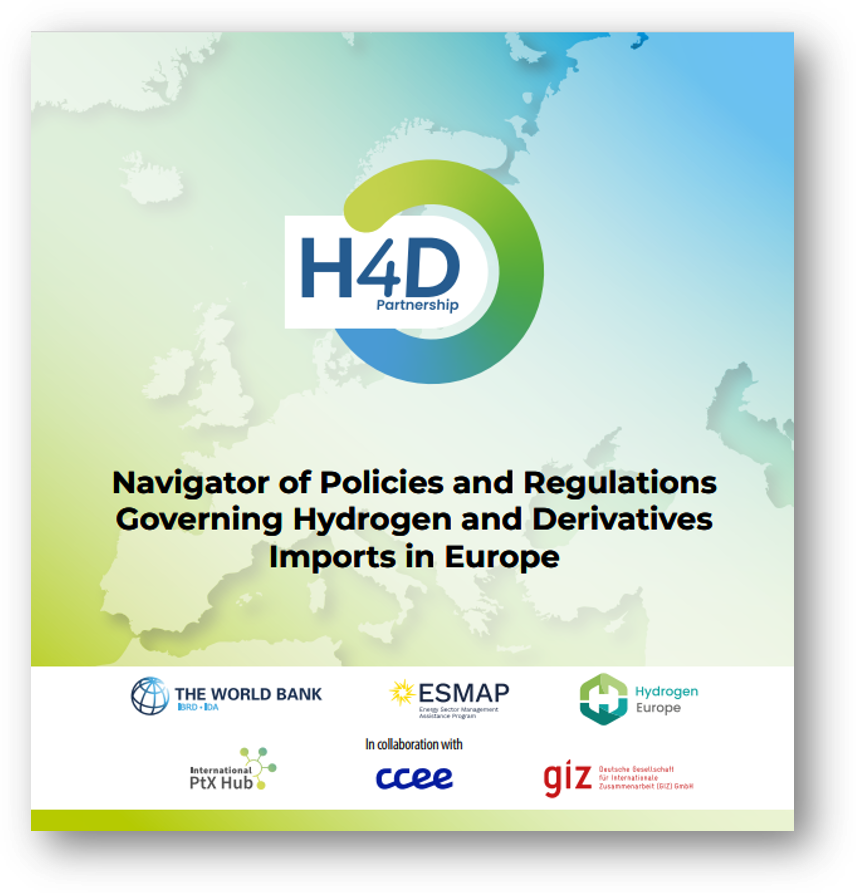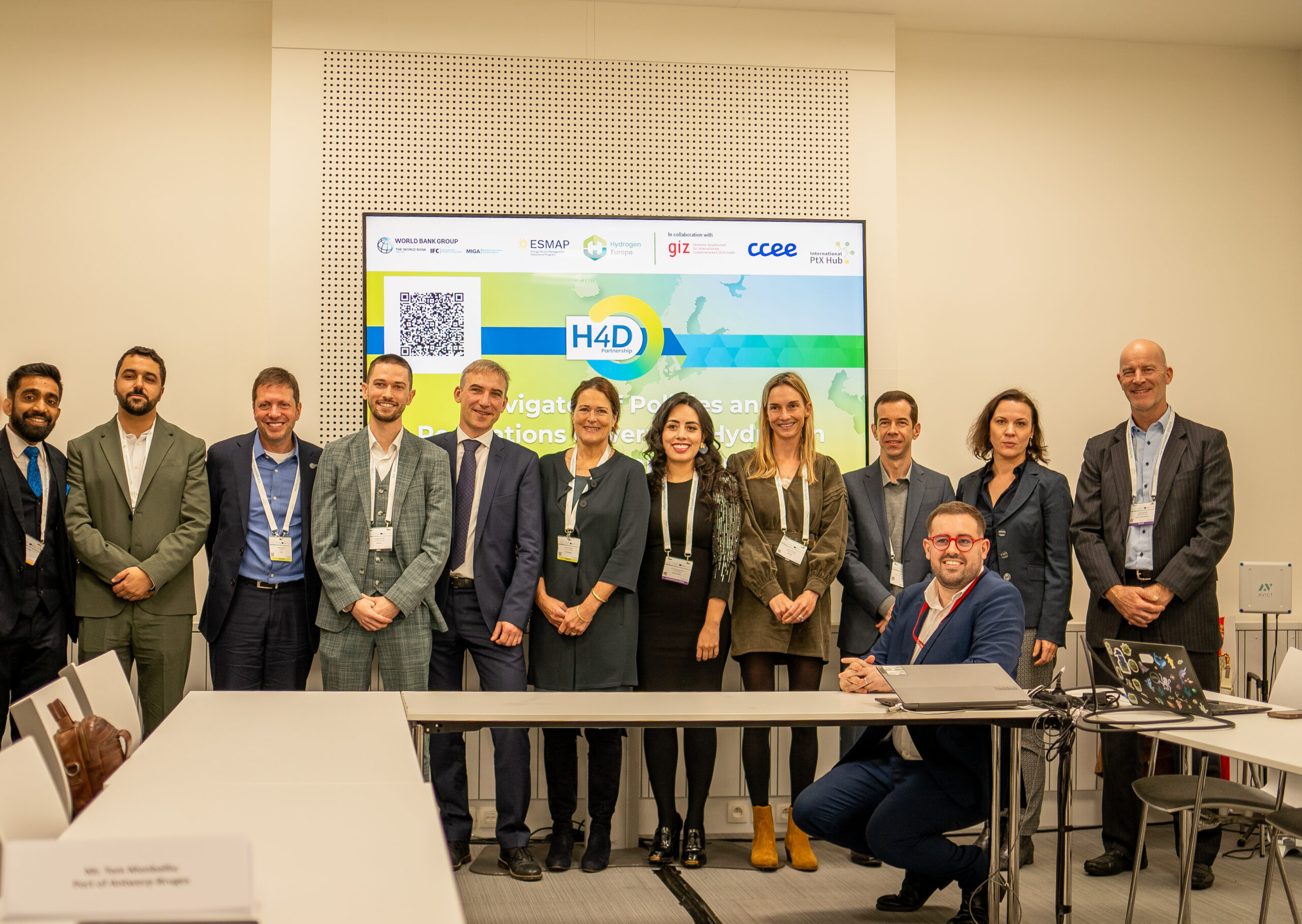The European Union has the most advanced regulatory framework for hydrogen and Power-to-X products – but it is also very complex. That is why the World Bank, Hydrogen Europe and H4D, in collaboration with the International PtX Hub and the Brazilian Chamber of Electric Energy Commercialisation (CCEE), have developed an EU Hydrogen Regulatory Navigator. The tool was officially launched at a roundtable discussion during the European Hydrogen Week on 19 November 2024.
For producers and investors outside the EU, it can be challenging to understand the existing EU regulations. The same is true for regulators who are considering to align their national regulatory frameworks with the rules of the EU. The new Navigator therefore provides a simple but comprehensive overview of the main policies and regulations governing the import of hydrogen and its derivatives into the EU. The tool aggregates information and provides direct links to the relevant official regulatory documents.
At the PtX Hub, we work with partners in countries that want to export to the EU, and we often get questions about EU regulations: what are the Delegated Acts? How does CBAM work? What carbon source can I use that is eligible? This Navigator now has all the information in one place, so it is a very good conversation starter for us. When we sit down with our partners, we can put it on the table to have an overview of all the EU regulations for hydrogen and PtX imports, and then go into detail about how the regulations in the EU and a particular third country might converge or diverge, and what producers in that country need to be particularly aware of.
Frank Mischler, Director of the International PtX Hub

About the H4D Partnership
The Hydrogen for Development Partnership (H4D) was created to offer a global platform to accelerate clean hydrogen deployment by fostering international cooperation needed to afford tailored-made solutions for low and middle-income client countries. This includes knowledge sharing and capacity building.
The acumen of global knowledge produced by the Partnership will support the implementation of policies and regulations that will accelerate investments in clean hydrogen projects. The Partnership’s goal is to ensure that developing countries and emerging markets can participate in the growing hydrogen economy across the value chain in support of their climate and energy goals, while ensuring sustainable development and socioeconomic benefits.
